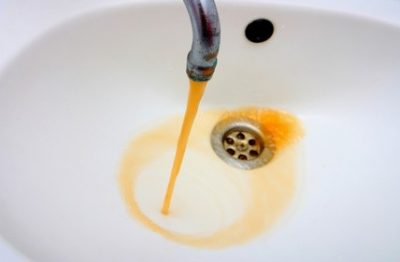How Often Should a Water Well Be Tested?
 Regardless of how clean your water supply is, the various contaminants can always find a way into your water well. These contaminants can occur naturally or come from a man-made source. Contaminants such as arsenic and radon are natural, whereas pesticides and sewage are the result of human activities. In order to keep these unhealthy contaminants at bay, a regular test needs to be conducted.
Regardless of how clean your water supply is, the various contaminants can always find a way into your water well. These contaminants can occur naturally or come from a man-made source. Contaminants such as arsenic and radon are natural, whereas pesticides and sewage are the result of human activities. In order to keep these unhealthy contaminants at bay, a regular test needs to be conducted.
Here are some common water well contaminants.
Radon
One of the most common contaminants found in well water is radon. The radioactive gas is colorless, odorless, and tasteless, and it is commonly found in rocks and soil. Although invisible, radon has the ability to contaminate water in the wells. It gets released when well water is used for drinking and washing purposes. This invisible gas is dangerous to human health because it causes respiratory issues and even lung cancer.
Arsenic
Another contaminant found in water wells is arsenic. Studies have shown that consuming water that is contaminated by arsenic can cause serious health problems. Arsenic-infused water has the ability to cause cancer as well as cardiovascular disease.
Nitrate
Nitrate can be found in food and water and is not harmful if consumed in smaller amounts. However, heavy consumption of nitrate can make a person sick. Nitrate can get into your well through damaged sewers and agricultural waste. The presence of nitrate in the water wells also depends upon geology of the land around the water well.
Volatile Organic Compounds
Volatile organic compounds are the industrial chemicals and waste materials from factories. If they get into your water wells, not only will they pollute the water, but they will also be injurious to health. These contaminants originate from manufacturing plants and fuel storages. If you live close to one of these facilities, the chances are that the volatile organic compounds will find a way into your water well.
Other Contaminants
They pollutants and contaminants in your water well depend on the area you live in. Some other common forms of contaminants are mercury, lead, pesticides, as well as radium.
When Should the Well Be Tested?
According to most disease control authorities, your well must be checked every year in spring. A common mistake that most people make is that they conduct a test when they buy a house and never schedule another test again. There are three reasons why you need to get your water well checked. Number one, when everyone else is experiencing water problems. Number two, after a flood has hit your locality, and thirdly when you notice a slight change in the taste, odor, and color of the water.
What Should the Well Be Tested For?
Whenever you plan to get your water well tested, don’t forget to ignore the nitrates, total dissolved solids, and the pH level. Also, keep a close eye on Coliform bacteria. A considerable amount of Coliform bacteria is an indication that your well is contaminated by viruses, bacteria, germs, and parasites.
If you want to protect the quality of your well water, make sure to follow the above-mentioned tips properly. Give Ries Well Drilling Inc a call to answer any questions you may have in regards to testing your water well, or any other water well needs that you may have. We can be reached at (586) 784-9516! We hope to hear from you soon!
